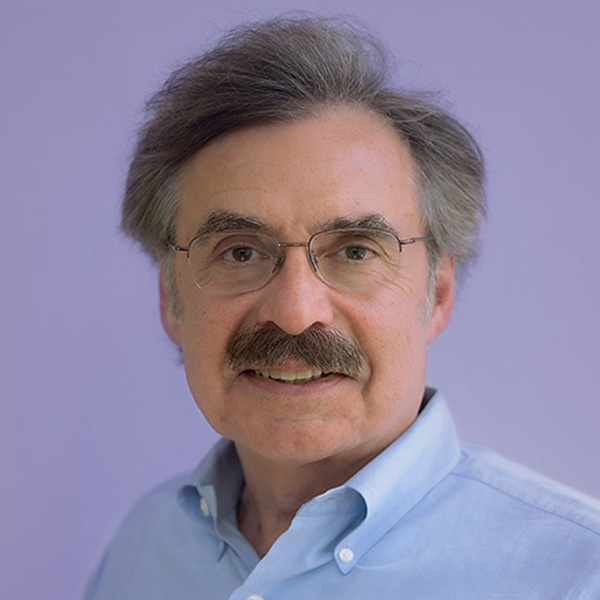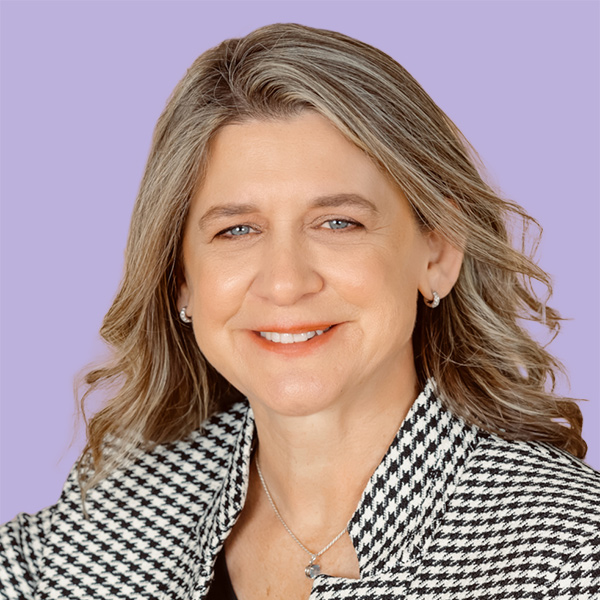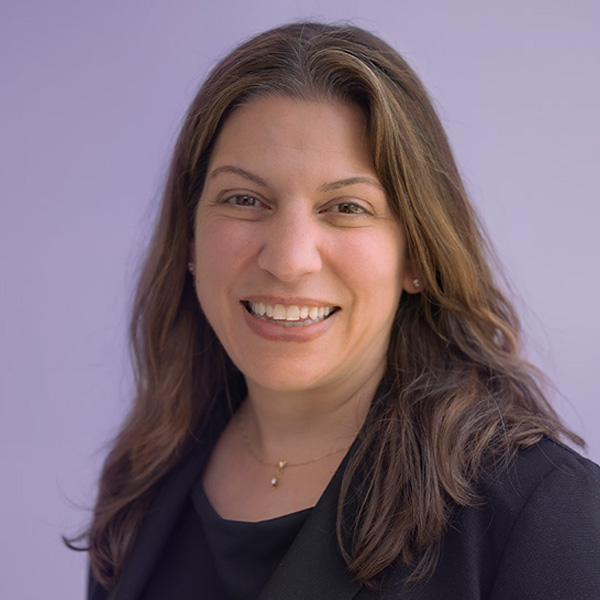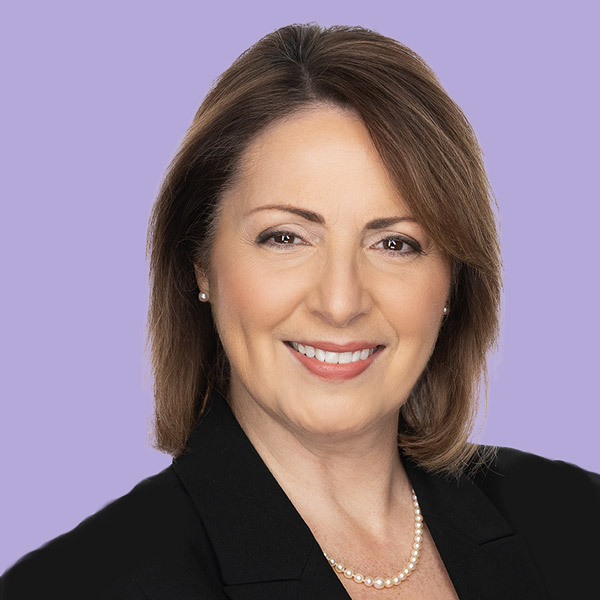Our why
We are bringing an immunology lens to identifying novel targets to treat cancer.
We are able to pursue first-ever drug discovery at the interface between the immune system and cancer because of our unparalleled team and partnership. Normunity was founded based on an ongoing partnership with the lab of Dr. Lieping Chen, a luminary in the field of cancer immunology, at the Yale School of Medicine.
A team like no other
The teams from Normunity and the Chen lab are deeply integrated and collaborative, bringing together a fusion of expert oncology minds in scientific discovery and drug development. It’s a powerful and invigorating partnership focused on a singular goal: to open up vast new opportunities to treat more cancers by targeting proteins upregulated by cancer that impact tumor growth and circumvent immune surveillance and tumor clearance.
Together with the Lieping Chen lab, our work interrogates the interactions between cancer and the immune system using human cells and tissues to identify novel anti-cancer targets using proprietary platforms. Our Normunity team is led by highly experienced leaders with track records for pushing boundaries in pursuit of novel oncology medicines. Our pioneering spirit and drive to help cancer patients is already actively set in motion with our pipeline of cancer therapies.
Management Team.

Rachel Humphrey has over 25 years of experience in clinical drug development, particularly in the field of cancer treatments and immunotherapies. Highlights of her career include leading the development of multiple blockbuster cancer therapies: the CTLA-4 inhibiting immunotherapy Yervoy® (ipilimumab) at BMS, the PD-L1 inhibiting immunotherapy Imfinzi® (durvalumab) at AstraZeneca, and the kinase inhibitor cancer drug Nexavar® (sorafenib) at Bayer. After working at these big pharmaceutical companies, Rachel took her drug development expertise to emerging biotech companies, where she served in the role of Chief Medical Officer at Black Diamond Therapeutics, CytomX Therapeutics and Mirati Therapeutics, respectively. She previously served on the Board of Directors of CytomX Therapeutics and Xilio Therapeutics, respectively, and currently serves on the Board of Directors of Pyxis Therapeutics and Sporos Bioventures. Rachel started her career as an oncology fellow and staff physician at the National Cancer Institute. She received her training in internal medicine at The Johns Hopkins Hospital, her MD from Case Western Reserve Medical School, and her B.A. from Harvard University.

Darlene Deptula-Hicks has served in an advising role at Normunity since 2023 and was appointed as Normunity’s Interim Chief Financial Officer in 2024. Darlene most recently served as Chief Financial Officer of F-star Therapeutics (FSTX) since 2019, which she took public in 2020 and through to the successful sale of the Company in March 2023. In addition, since early 2018 Darlene has operated Crimson Consulting, LLC, a strategic, financial and CFO consulting services company, and has also served as acting Chief Financial Officer for Northern Biologics from 2018 and to the successful sale of its preclinical and clinical programs to Boehringer Ingelheim and AstraZeneca in 2020. Prior, she was the Senior Vice President and Chief Financial Officer of T2 Biosystems (TTOO). Previously she was Senior Vice President and Chief Financial Officer of Pieris Pharmaceuticals (PIRS) which she also took public and Vice President and Chief Financial Officer of Microline Surgical. Darlene currently also serves on the board of directors and as audit committee chair of Abcuro and Aerami Therapeutics and previously served on the board of directors and as audit committee chair of Giner Life Sciences, Xentic Biosciences, and IMCOR Pharmaceuticals. Darlene received her M.B.A. from Rivier University and a B.S. in Accounting from Southern New Hampshire University.

Bill LaRochelle has over 30 years of experience in translational research and drug development in the biotechnology/pharmaceutical industry and federal government, with experience building multiple successful drug discovery and development programs, as well as implementing R&D strategies for novel drug products. He had a 16-year tenure at Roche, including as Clinical Sciences Director at Roche Diagnostics, focusing on integrating next-generation sequencing and digital PCR platforms in the development of precision medicines. Also at Roche, he served as Scientific Director and Head of Healthcare Business Development, and the Head of Key Opinion Leader Relationships. Prior to this, Bill spent 8 years at CuraGen Corporation, where he directed the Translational Oncology Program, and he was responsible for initiating, conducting and managing translational oncology research activities resulting in four INDs for novel cancer drugs. Prior to joining CuraGen, Bill was a principal investigator at the National Cancer Institute at the National Institutes of Health where his research focused on oncogene/growth factor signal transduction and monoclonal antibodies in cancer and inflammation. He is an author of over 80 peer-reviewed publications, numerous patents, and the editor of the Oncogenomics Handbook. He received an American Cancer Society postdoctoral fellowship to study at the National Cancer Institute, earned a Ph.D. in biochemistry at Dartmouth Medical School, and a B.S. in biochemistry from Manhattan College.

Melinda Merchant is a physician scientist with two decades of experience in clinical oncology research. Melinda brings a patient-first mentality to the Normunity team, with a drive to collaboratively translate scientific findings to address unmet needs in the clinic. As a board-certified Pediatric Hematologist & Oncologist, Melinda held faculty/staff positions at Memorial Sloan-Kettering Cancer Center and the National Cancer Institute, with a focus on sarcomas and immuno-oncology. She was a lead investigator on multiple pediatric immunotherapy clinical trials, including ipilimumab, nivolumab, and novel cell therapies. Since her move to industry in 2015, Melinda has been highly active in clinical development at the interface of laboratory to early phase clinical trials, directing clinical development of multiple first-in-human studies at AstraZeneca, and late-stage development experience as head of Translational Medicine and clinical lead of the phase 3 confirmatory study in sarcoma supporting approval of Tazverik® (tazmetostat). As a leader in pharma and biotech, Melinda has successfully grown teams of scientists and physician scientists to collaboratively meet the challenges of drug development. Melinda received her MD and Ph.D. at the University of Miami School of Medicine and Department of Immunology & Microbiology, trained in pediatrics at Children’s National Medical Center, and completed fellowship at the National Cancer Institute in a combined program with Johns Hopkins Hospital.

François Gaudet is an experienced drug developer with 24 years of industry experience at Novartis, Johnson & Johnson and as CSO at a start-up therapeutic company (Mnemo Tx). At J&J (Oncology), François was the discovery leader to create their CD3 redirection platform, cracking the code to generate the human SP34-derived CD3 arm that is now used in many approved products. For this foundational work, he received the Hofmann award, the highest prize within J&J R&D. His own research group created and drove five CD3 engagers from inception to the clinic, including 2 approved drugs, TECVAYLI and TALVEY (both first-in-class). He is a co-inventor for both approved drugs. François conducted his PhD graduate work at the Whitehead Institute at the Massachusetts Institute of Technology in cancer epigenetics and mammalian development in Rudolf Jaenisch’s laboratory.

Kristin Robbins has over 20 years of experience in clinical drug and medical device development. Prior to Normunity, Kristin was the Head of Program Management and Program Manager for the lead program at Kaleido Biosciences in Urea Cycle Disorder which submitted an IND for KB195 and executed a subsequent Ph2 trial. Before Kaleido, she had a 10-year tenure at Hologic, Inc., a Women’s Health company, including as Director of Program & Portfolio Management in the Surgical and Breast Health Divisions, focusing on variety of technologies including the NovaSure Endometrial Ablation Device and the Brevera Breast Biopsy System among others. Earlier in her career, Kristin spent 3 years as a Program Manager at Boston Scientific in two different divisions, the Oncology division, working on implantable ports for the administration of fluids and drugs for oncology patients and the Endovations division, which was a unique “startup type” division within a large company concept to build a single use colonoscope. Kristin’s early work in medical devices was with Abbott Laboratories. Kristin started her career as a registered nurse at Highland Hospital in Rochester, NY. She received a B.S. in Nursing at the University of Rochester and her MBA from Northeastern University and has a Project Management Professional (PMP) Certification.

Ellen K. Forest is the former Chief Human Resources Officer of Yumanity Therapeutics (now Kineta, Inc.). While at Yumanity, she oversaw the company’s human resource efforts and is responsible for developing and implementing the strategic human resources vision in support of the overall goals and mission of the company. Prior to joining Yumanity, Ms. Forest served as Senior Vice President and Head of Human Capital for Cogen Immune Medicine, a company developing immune modulation therapeutics that control the immune system, targeting the specific drivers of disease (now Repertoire Immune Medicines). Previously as Vice President and Head of Human Resources for publicly traded Merrimack Pharmaceuticals, Ms. Forest was responsible for leading human resources strategy including organizational leadership, talent management, change management, and culture. Her earlier career included global human resources leadership positions at Baxalta (acquired by Shire), Partners HealthCare, a non-profit healthcare system, and TA Associates, a global private equity firm.
Ms. Forest holds an M.S. in Human Resources Management and a B.S. in Business from Emmanuel College and serves as member of several human resources organizations.
Board of Directors.
Over the past 30 years, Dr. Timothy Shannon has been an entrepreneur, executive, researcher, professor, and practicing physician. He is Executive Chair and member of the Board of Halda Therapeutics and a General Partner at Canaan Partners. He also serves or has served on the boards of several Canaan portfolio companies, including Arvinas, CytomX, IDEAYA Biosciences, NextCure, RallyBio, Halda Therapeutics, Novira Therapeutics, Civitas Therapeutics, Vivace Therapeutics, and AER Therapeutics.
Previously, Dr. Shannon was President and Chief Executive Officer of CuraGen, a biopharmaceutical company focused on oncology, after serving as Executive Vice President of R&D and Chief Medical Officer. He also held positions of increasing responsibility for Bayer’s Pharmaceutical Business Group, including Senior Vice President of Global Medical Development. Prior to his career in industry, he was an Assistant Professor in the Pulmonary and Critical Care Division at Yale University School of Medicine.
Dr. Shannon received his B.A. in Chemistry from Amherst College, his medical degree from the University of Connecticut, and completed his postgraduate medical training at the Beth Israel Hospital of Harvard Medical School and Boston University.
Mr. Sakae Asanuma established Taiho Ventures as the founding President in 2016. Prior to joining Taiho, he was President and CEO at Astellas Venture Management and US Head of Astellas Innovation Management in 2011-2015. Prior to Astellas, he worked for Yasuda Enterprise, a Japan/US-based VC firm in 2000-2011. He has invested in more than 50 biotech companies since 2000 and majority of his portfolios achieved IPOs or M&AS. During his tenure at Taiho and Astellas, he led to executed dozens of research collaboration deals with academia and biotech ventures, including several build-to-buys or spinouts.
Dr. Paulina Hill joined Sanofi Ventures in 2022 with a background in early-stage biotech investing and company building. Prior to joining Sanofi, Paulina was a Principal on the investment team at Omega Funds where she served as the board director or observer for Scorpion Therapeutics, Arrakis Therapeutics, IFM, and additionally led or co-led Omega’s investments in Theseus (NASDAQ: THRX), Ikena (NASDAQ: IKNA), Synthekine and Vanqua Bio.
Prior to joining Omega Funds, Dr. Hill began her career with Polaris Partners. She served on the boards of Kala Pharmaceuticals (NASDAQ: KALA), Neuronetics (NASDAQ: STIM) and Lyra Therapeutics (NASDAQ: LYRA), Microchips Biotech (acquired by Dare Biosciences), Arsenal Medical and CAMP4 Therapeutics, where she was the founding CEO.
Dr. Hill completed her postdoctoral fellowship in Professor Robert Langer’s lab in the Chemical Engineering department at the Massachusetts Institute of Technology (MIT). During her time at MIT, she founded the MIT Postdoctoral Association and served as its President. Paulina also served on the MIT Intellectual Property Committee. Paulina completed her PhD in Molecular Medicine from the Wake Forest University School of Medicine. Paulina graduated magna cum laude from East Carolina University with a quadruple major in biochemistry, neuroscience, biology, and chemistry. Paulina attended East Carolina University on a full athletic scholarship and served as the captain of the women’s varsity tennis team.
Sara Nayeem, M.D. is Executive Vice President, Investments at Enavate Sciences. She focuses on portfolio strategy and plays a key role in the origination, evaluation, and selection of Enavates’ partner companies. Additionally, she supports our portfolio with capital formation, strategic and select operational decisions. Sara currently serves as a board observer for BridgeBio Oncology Therapeutics.
Sara has 20 years of experience in biotech investing and advisory services. She most recently served as Partner at Avoro Ventures, a biopharma venture fund she helped launch in 2021. Previously she was a Partner at New Enterprise Associates, Inc. (NEA), where she spent 12 years as part of the biopharma investing group. Over her investing career, Sara has played a key diligence and management role in 28 investments, from which there have been 11 IPOs and 10 acquisitions with upfront payments exceeding $16 billion. Prior to joining NEA, Sara was an investment associate at Merrill Lynch, and she started her career as an investment banking analyst at Morgan Stanley banking. Sara has conducted basic science research in mammalian cardiac development and clinical research in age-related macular degeneration. She serves on the board of No Patient Left Behind, on the Advisory Board for The Blavatnik Fund for Innovation at Yale, and on the Memorial Sloan Kettering Technology Development Fund Review Committee.
Sara earned her A.B. in Biology from Harvard College and concurrent M.D./MBA degrees from Yale University.
David Parry is a venture partner at Samsara. Prior to Samsara he worked within the Global BD organization at GSK focusing on search, evaluation and due diligence of immunology-focused opportunities for two years. Prior to his work within Global BD, Dave joined the Discovery Partnerships with Academia (DPAc) Research Unit at GSK, where he worked extensively with multiple US/EU academic institutions to identify and progress early-stage innovation utilizing the capabilities of pharma within a collaborative, milestone-based framework. Prior to GSK, he was at Portola Pharmaceuticals, working on inflammatory disease and oncology drug discovery/development. From 1999-2010 he worked at DNAX Research in Palo Alto where led research, drug discovery and early clinical development of small molecule efforts focused on the cell cycle, DNA damage/repair and biopharm targets in the immuno-oncology space. Dave received his BSc (Hons) in Biochemistry from The University of Manchester Institute of Science and Technology (UMIST) and a PhD in Molecular Oncology from The Imperial Cancer Research Fund (ICRF).
Marie-Claire Peakman, MRPHARMS, PHD is a Partner at Pfizer Ventures and Executive Director, Worldwide Business Development. Marie-Claire is responsible for identifying, evaluating, making and managing equity investments aligned with the future directions of Pfizer. She currently has responsibility for Pfizer’s investments in Curve Therapeutics, DEM Biopharma, Grey Wolf Therapeutics and Mozart Therapeutics, She is an observer on the boards for Capstan Therapeutics, Crossbow Therapeutics, Mediar Therapeutics and TRex Bio.
Marie-Claire brings 25 years of scientific leadership at Pfizer, delivering small molecule therapeutics to the clinic and to market across multiple therapeutic areas. Most recently she led the Primary Pharmacology Group which she founded in 2009 and which played key roles in the identification of Paxlovid™ (nirmatrelvir), Cibinqo™ (abrocitinib), Litfulo™ (ritlecitinib) and multiple other small molecules currently in the clinic. She has additional experience leading compound management, high throughput ADME, data support and management, genetically modified models, bioimaging and biobanking. Prior to Pfizer Marie-Claire gained experience at The Wellcome Foundation, at Guy’s Hospital, London, UK and held postdoctoral positions at Yale University. She is a member of the advisory board for Connecticut Bioscience Innovation Fund and has multiple roles on non-profit boards in the community.
Marie-Claire received a B.Pharm.Hons. degree in Pharmacy and a Ph.D. in Physiology & Pharmacology from the University of Nottingham U.K. She is a member of the Royal Pharmaceutical Society.
Mr. Debanjan Ray has 20 years of experience in high-growth companies in the biopharma industry, including leadership expertise in corporate strategy, portfolio management and fundraising, partnering and M&A transactions. He has served as Synthekine’s President and Chief Executive Officer since the company’s formation in 2019 and over that time has led the growth of Synthekine from an early stage platform company to multi-modality, multi-asset clinical stage company.
Before joining Synthekine, he served as Chief Financial Officer and head of corporate development at CytomX Therapeutics, capping an eight-year tenure in roles of increasing responsibility. He helped advance CytomX from an early stage platform technology to multi-asset clinical stage company, led financing efforts and closed multiple collaborations with several leading pharmaceutical companies including Bristol Myers Squibb, AbbVie, and Amgen, that generated over $500 million in upfront payments and up to $5 billion in milestones. Prior to joining CytomX in 2011, Mr. Ray was VP of Business Development at Itero Biopharmaceuticals. Earlier in his career, Debanjan held positions in business development at Portola Pharmaceuticals, in the life sciences venture practice at J.P. Morgan Partners and as a business analyst in the healthcare practice at McKinsey & Company.
Debanjan received his MBA from The Wharton School, University of Pennsylvania, and his BS in chemical engineering and biology from the Massachusetts Institute of Technology.
Rachel Humphrey has over 25 years of experience in clinical drug development, particularly in the field of cancer treatments and immunotherapies. Highlights of her career include leading the development of multiple blockbuster cancer therapies: the CTLA-4 inhibiting immunotherapy Yervoy® (ipilimumab) at BMS, the PD-L1 inhibiting immunotherapy Imfinzi® (durvalumab) at AstraZeneca, and the kinase inhibitor cancer drug Nexavar® (sorafenib) at Bayer. After working at these big pharmaceutical companies, Rachel took her drug development expertise to emerging biotech companies, where she served in the role of Chief Medical Officer at Black Diamond Therapeutics, CytomX Therapeutics and Mirati Therapeutics, respectively. She previously served on the Board of Directors of CytomX Therapeutics and Xilio Therapeutics, respectively, and currently serves on the Board of Directors of Pyxis Therapeutics and Sporos Bioventures. Rachel started her career as an oncology fellow and staff physician at the National Cancer Institute. She received her training in internal medicine at The Johns Hopkins Hospital, her MD from Case Western Reserve Medical School, and her B.A. from Harvard University.
Scientific Advisory Board.
Dr. Lieping Chen is an immunologist known for his works in T cell biology, cancer immunology, and translational research to develop new treatments for human diseases, especially in the development of anti-PD-1/PD-L1 cancer immunotherapy. Prior to joining Yale Medical School, he was a faculty member at Johns Hopkins University School of Medicine, a faculty member at Mayo Clinic, and a scientist for the pharmaceutical company, Bristol-Myers Squibb.
Dr. Chen’s discoveries directly led to the development of anti-PD-1/PD-L1 cancer immunotherapy against broad spectrum of human cancers, and his work in the discovery of the PD-1/PD-L1 pathway
was cited as the #1 breakthrough of the year by Science magazine in 2013. He did the first proof-of-concept study in 1992 showing that the B7-CD28 family molecules could be the targets for cancer immunotherapy by introducing B7-1 into tumor cells to enhance therapeutic immunity. In 1999, he discovered PD-L1 (also called B7-H1) molecule and subsequently demonstrated the role of PD-L1 in the evasion of tumor immunity, and established the PD-1/PD-L1 pathway as the target for cancer immunotherapy. He also initiated and help organized the first-in-man clinical trial of anti-PD-1 antibody for treating human cancer and developed PD-L1 staining as a biomarker to predict treatment outcome. His laboratory also discovered many molecular pathways with immune modulatory functions and their applications in human disease treatment. These pathways include 4-1BB (CD137), ICOS/B7-H2, B7-H3, B7-H4, B7-H5/CD28H, PD-1H (VISTA), LIGHT/HVEM, RELT, TROY, B7-H2/CD28/CTLA-4 (human), SALM5/HVEM, FGL1/LAG-3, Siglec-15. These discoveries have led to the development of therapeutic agents in various stages of clinical trials for the treatment of human cancer.
Dr. Chen had his medical training in Fujian Medical University and his fellowship in immunology/ oncology in Peking Union Medical College in Beijing. He moved to U.S. to earn a PhD degree from Drexel University College of Medicine. He is a member of the National Academy of Sciences and a fellow of the American Association for Cancer Research. Dr. Chen has published over 370 peer-reviewed research articles.
Dr. Herbst is the Ensign Professor of Medicine, Professor of Pharmacology, Chief of Medical Oncology, Director of the Yale SPORE in Lung Cancer, and Associate Director for Translational Research at Yale Cancer Center (YCC) and Yale School of Medicine. He has worked over several decades as a pioneer of personalized medicine and immunotherapy to identify biomarkers and bring novel targeted treatments and immunotherapies to patients, serving as principal investigator for numerous clinical trials testing these agents in advanced stage lung cancers. His research and clinical collaborations have led to the approval of several therapies (such as gefitinib, cetuximab, bevacizumab, axitinib, atezolizumab, and pembrolizumab), which have revolutionized the field and greatly enhanced patient survival. His work on “umbrella” trials has galvanized the field of targeted therapy and cancer drug approvals at the FDA. Nationally, he is at the forefront of personalized medicine and works closely with public-private partnerships to develop large clinical studies, such as Lung-MAP. The NCI Lung SPORE he leads has identified new mechanisms of sensitivity and resistance to immunotherapy.
Dr. Nils Lonberg has 30 years of operational experience in Biotech and Pharma, focusing on platform innovation, drug discovery, and drug development. Most recently, he was Senior Vice President, Oncology Discovery Biology, at Bristol-Myers Squibb, where he led drug discovery efforts for both targeted and immuno-oncology agents, including the checkpoint blockade therapies ipilimumab and nivolumab. Nils also has experience in startup and midsize biotech, serving as Scientific Director at GenPharm and Medarex. He received his PhD in Biochemistry and Molecular Biology from Harvard University and was elected to the National Academy of Engineering in 2015.
Dr. Mario Sznol is a Professor of Medicine (Medical Oncology) at Yale and Co-Director of the Cancer Immunology Program and Leader of the Melanoma/Renal Cancer Translational Research Team at Yale Cancer Center. Formerly with the National Cancer Institute (NCI), Dr. Sznol has an international reputation in cancer drug development. His expertise and experience are in cancer immunotherapy, drug development for cancer and treatment of patients with melanoma and renal cell carcinoma. He has contributed to the development of cytokines, cell therapies, co-stimulatory antibodies and immune checkpoint inhibitors, through the design, execution and analyses of clinical trials and clinical development plans as well as through direct patient care.
After completing a fellowship in medical oncology at Mount Sinai College of Medicine in 1987, he joined the NCI as a Senior Investigator in the Investigational Drug Branch (IDB), Cancer Therapy Evaluation Program (CTEP). From 1994-1999, Dr. Sznol was head of the Biologics Evaluation Program, IDB, CTEP where he was responsible for clinical development of multiple biological and immune therapy agents. In 1999, he left NCI to become Vice President of Clinical Development for Vion Pharmaceuticals. He joined the Yale faculty in medical oncology in 2004.
Dr. Taha Merghoub is the deputy director of the Sandra and Edward Meyer Cancer Center at Weill Cornell Medicine. His research centers on discovering and improving immunotherapies that more effectively harness immune responses to improve outcomes in patients with cancer. He received his BA degree from University of Algiers, Algeria, and MS and PhD degrees with highest distinction from University of Paris, France. His thesis work focused on the study of genetic polymorphism in fetal hemoglobin genes in patients with sickle cell anemia and thalassemia. His findings provided insight to the correlation of genotypes and phenotypes in sickle cell anemia and thalassemia. After graduation, he pursued his postdoctoral research with Dr. Pier Paolo Pandolfi at Memorial Sloan Kettering Cancer Center. He characterized the transcriptional properties of the Pokemon gene and its role during development. He also played an active role in the generation of laboratory models for acute promyelocytic leukemia and furthered his knowledge and experience in genetics.
Dr. Pardoll is an Abeloff Professor of Oncology, Medicine, Pathology and Molecular Biology and Genetics at the Johns Hopkins University, School of Medicine. He is the Director of the Bloomberg~Kimmel Institute for Cancer Immunotherapy and Director of the Cancer Immunology Program at the Sidney Kimmel Comprehensive Cancer Center at Johns Hopkins. Dr. Pardoll attended Johns Hopkins University, where he earned his M.D., Ph.D., in 1982 and completed his Medical Residency and Oncology Fellowship in 1985. He then worked for three years at the National Institutes of Health as a Medical Staff Fellow. Dr. Pardoll joined the departments of oncology and medicine in 1988. Dr. Pardoll has published over 300 papers as well as over 20 book chapters on the subject of T cell immunology and cancer vaccines. He has served on the editorial board of the Journal of the National Cancer Institute and Cancer Cell, and has served as a member of scientific advisory boards for the Cancer Research Institute, the University of Pennsylvania Human Gene Therapy Gene Institute, Biologic Resources Branch of the National Cancer Institute, Harvard-Dana Farber Cancer Center, Cerus Corporation, Global Medical Products Corporation, Genencor Corporation, CellGenesys Corporation, Mojave Therapeutics, the American Association of Clinical Oncology and the American Association of Cancer Research. Dr. Pardoll has made a number of basic advances in Cellular Immunology, including the discovery of gamma – delta T cells, NKT cells and interferon-producing killer dendritic cells. Over the past two decades, Dr. Pardoll has studied molecular aspects of dendritic cell biology and immune regulation, particularly related to mechanisms by which cancer cells evade elimination by the immune system. He is an inventor of a number of immunotherapies, including GVAX cancer vaccines and Listeria monocytogenes based cancer vaccines. Dr. Pardoll’s basic immunology discoveries include the identification of gd-T cells, NKT cells and IKDC. He elucidated the role of Stat3 signaling in tumor immune evasion and in Th17 development, leading to the discovery that Stat3-driven Th17 responses promote carcinogenesis. Dr. Pardoll discovered one of the two ligands for the PD-1 inhibitory receptor and leads the Hopkins cancer immunology program that developed PD-1 pathway-targeted antibodies, demonstrating their clinical activity in multiple cancer types. His more than 300 articles cover cancer vaccines, gene therapies, cancer prevention technologies, recombinant immune modulatory agents for specific pathways that regulate immunity to cancer and infectious diseases.